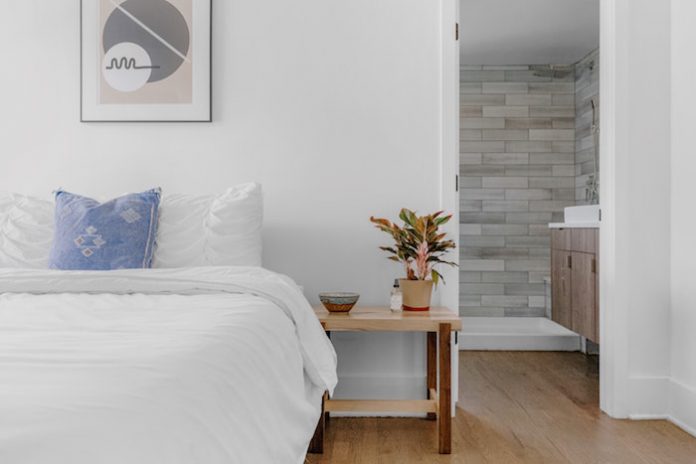Renting out part of your home for extra income sounds like a great idea. However, there are some things you need to know before you venture into this business.
Rentals always seem to come with their fair share of complexities. Nevertheless, we’ll try our best to tell you what you need to know when renting out your basement in Ontario. The benefits, the drawbacks, and some tips to have in mind should push you forward with the idea.
The most important question to ask yourself when venturing into rental businesses is, “Is this business model legal?” In this case, yes, basement rentals are legal in Ontario.
However, there are some requirements you’ll have to meet for the local authorities to recognize your basement as a legal living space.
Below are some of the requirements you’ll have to meet before you list your basement out for rent:
- Fire and electrical safety standards.
- Occupancy codes.
- Property standards.
- The residential zoning requirements.
Next, we’ll go into some of the benefits of renting out your basement.
The 2 main benefits of renting out your basement in Ontario
1. It’s a secondary source of income
Renting out your basement means you’ll now have a second source of income at your disposal. You can use the money to pay your taxes or save for some project you’ve been working on.
This secondary source of income is even more valuable if you’re still paying your monthly mortgage installments. It will save you a ton of money.
Do you want to own a home in one of Canada’s safest communities? Check out Stouffville’s new homes.
2. The renovations will boost your house’s equity
As you rent out your basement, you’re probably going to do repairs and renovations to make the house more pleasing to your tenants. Over time, these repairs will significantly count towards increasing your home’s resale value.
The 3 main drawbacks of renting out your basement in Ontario
1. Less privacy
Easily one of the main reasons why most people shy away from basement rentals. For the most part, you’ll have to deal with allowing strangers into your house. You’ll have to insulate the walls to prevent eavesdropping.
In addition to that, you’ll have to give away some of your living space.
2. Setting up a rental basement can be too costly
You’re probably going to have to do some repairs and renovations to transform your storage basement into a legal living space. Setting up windows, rewiring, insulating the walls, and other modifications. All those will cost a considerable amount of money.
3. Being a landlord can be stressful
Renting out your basement means you’ll automatically attain the “landlord” status. This comes with a lot of responsibility and its fair share of stresses. At times, you’ll have to deal with destructive and non-paying tenants.
Tips and important information you need to know when renting out your basement in Ontario
1. Make sure the renovations are permitted
We’ve seen it in the past. Homeowners all over the country lost thousands of dollars because of unpermitted renovations that came back to bite them.
As mentioned earlier, even though the basement is finished, you must get the municipality to approve of it before you throw it into the market. Make sure it’s registered as a single rental unit.
2. Carefully prepare a lease agreement
Once you’ve registered your basement as a legal living space, you must now carefully prepare a lease agreement. If you’re not careful, you might find yourself liable for the tenant and his or her visitors.
A standard lease agreement usually states all the terms and conditions that the tenant and landlord have agreed on, like usage and sharing utilities like electricity and water.
Of more importance, make sure you clearly state in the lease agreement that the tenant should have enough liability insurance for the basement unit—the last thing you want to do is face claims from tenants hurting themselves in your property.
3. Set the rent carefully
First-time basement landlords make the mistake of setting the rent too low. They do this to attract tenants quickly. Most of them think they can increase the rent a few months later after the tenant has settled in.
No, you can’t significantly increase the rent after signing the first lease agreement with a tenant. In fact, in 2020, the maximum increase is 2.2%.
Note: The rent you set with your first tenant will affect how much rent you can charge for the next 15 years.
4. Know how to handle your rental taxes and exemptions
Renting out your basement means you’ll now have to pay tax on the rental income you’re receiving. To first-time landlords, this opens up a whole new world of rental taxes. There is much to learn.
First, you should know of the various ways you can reduce the tax on your rental income. Setting up your business as a corporation is one way you can do that.
You should also be aware of the exemptions you might lose if you decide to rent out a portion of your house. One such exemption is the Capital Gains Exemption.
Reach out to your tax consultant for more information on this.
5. Thoroughly screen all of your tenants before admission
Be careful with who you let into your house, even if that person is a tenant.
Since that person will live there for a considerable amount of time, do your best to make sure he or she is a perfect fit. The best way you can screen your tenants is by requiring them to fill out rental applications.
In the rental applications, request information that will help you do background checks on them. Look out for things like credit scores, employment details, and everything that will help you figure out whether or not the tenant will keep his or her end of the bargain.
Also, don’t be afraid to ask questions when you meet them in person. Here is a guide on the questions you’re allowed to ask.
Find a Home-Based Business to Start-Up >>> Hundreds of Business Listings.

















































